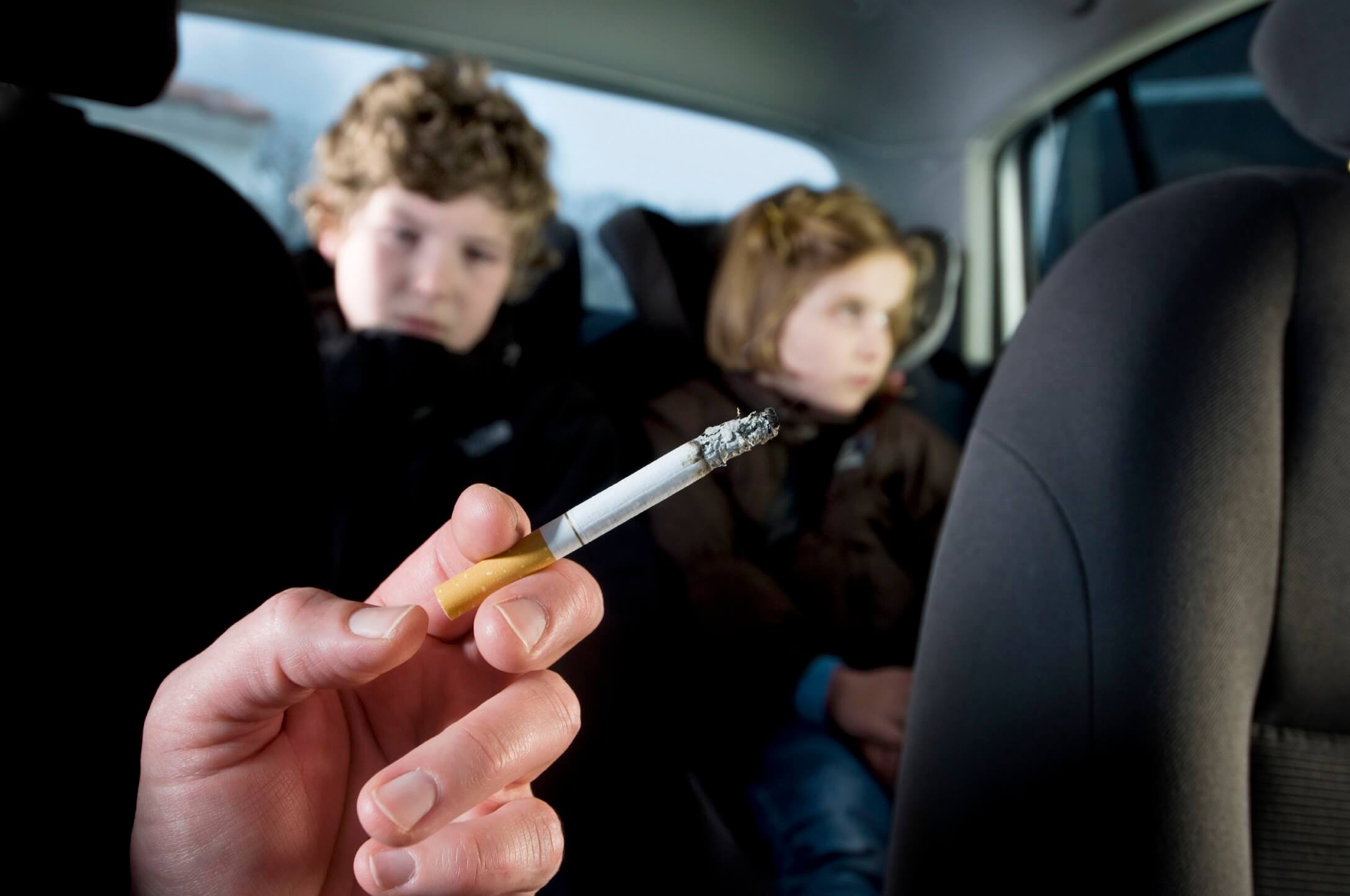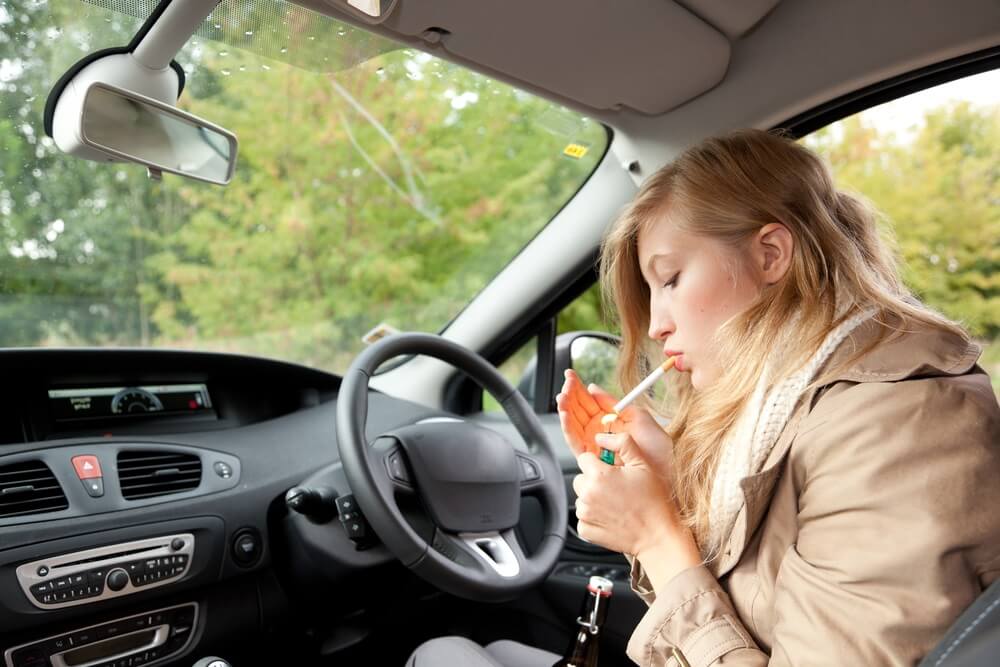
Cars with children present must be smoke-free

Smokers will no longer be able to spark up a cigarette in their car if a child under the age of 18 is present.
The Government recently outlawed the habit to help prevent children inhaling the dangerous chemicals found in cigarettes.
Smoking in enclosed public spaces has been illegal since 2007.
Rules on smoking in private vehicles
As of 1 October 2015, it’s now illegal to smoke in an enclosed private vehicle if someone under 18 is present.
It’s also illegal if a driver (including provisional drivers) fails to stop a passenger from smoking when a child is present.
Both offences carry a £50 fine and police have the right to refer the matter to court.
Are there any exceptions?
Yes, there are. The rules don’t apply to:
- e-cigarettes
- Convertibles with the roof down and stowed
- 17-year-olds who choose to smoke in a private vehicle alone
Convertibles
The legislation covers any private vehicle that is enclosed wholly or partly by a roof, so while it’s fine to smoke in a convertible with its roof down and stowed away, a car with its sunroof open is still classed as ‘enclosed’ and is covered under the new law.
You also can’t prop the door open and smoke – if you’re caught, you’ll be fined.
Teenage smokers
A 17-year-old will not be breaking the law if they choose to light up in a private vehicle if they’re on their own. The law says private vehicles must be smoke-free when carrying more than one person under the age of 18, so, a 17-year-old smoking isn’t breaking any rules.
Motor homes and caravans
If you’re driving a motor home, campervan or caravan, then it’s a no-smoking zone. However, you’re safe to light up when they are stationery and being used as accommodation.
Work vehicles and public transport are covered under separate smoke-free legislation.
Why is the law changing?
The Government says: “Every time a child breathes in second-hand smoke, they breathe in thousands of chemicals. This puts them at risk of serious conditions, such as meningitis, cancer and respiratory infections such as bronchitis and pneumonia. It can also make asthma worse.
“Second-hand smoke is dangerous for anyone, but children are especially vulnerable, because they breathe more rapidly and have less developed airways, lungs and immune systems. Over 80% of cigarette smoke is invisible and opening windows does not remove its harmful effect.
“The law is changing to protect children and young people from such harm.”


